
views
1. Identify the languages involved and the direction of translation (e.g., English to Spanish)
2. Compile a list of words or phrases you want to translate.
3. Pair each word or phrase with its equivalent in the target language.
4. Organize the entries alphabetically by the source language.
5. Consider including pronunciation guides or phonetic spellings if helpful.
6. Verify the accuracy of translations through reputable sources or native speakers.
7. Format the entries consistently for clarity and ease of use.
8. Consider adding contextual information or usage notes if necessary.
9. Proofread and edit your dictionary for accuracy.
10. Publish your translation dictionary in a format suitable for your audience, such as print or digital.
These steps are appropriate for a descriptive definition of how a term is actually used. Note that this is a more demanding process than writing a prescriptive definition, such as one defining how an author will use a term in a document.

Find examples of the word in use. Google (and especially Google Books) are excellent resources for finding citations. Citations provide evidence that the word is in use and show how it is used.
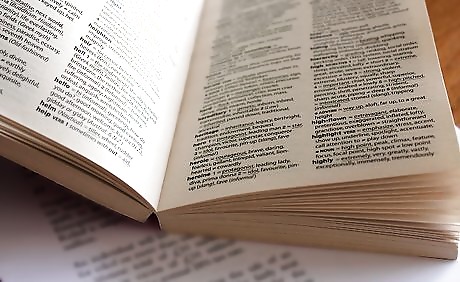
Examine how the word functions in the examples that you find.
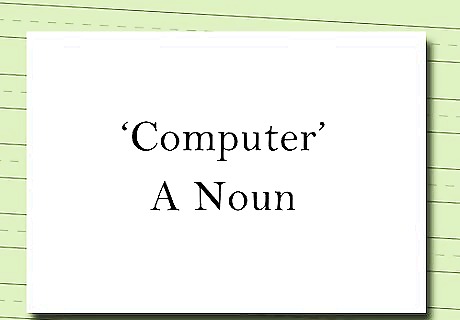
Determine the part of speech of the word, for the sense or senses you wish to define. This will help you write the right definition. Recall these basics: Noun: A person, place, or thing: Utah, minivan, moon, grocer, January. Nouns can also be ideas, such as "confidence" or "hesitation". Pronoun: A word that takes the place of a noun. He, she, it, they. Verb: An action word. Go, jump, harangue, grill, gaze, ponder, hurry. Adjective: A word that describes, or modifies, a noun. A red hat, a slow train, a precarious ledge. Adverb: A word that modifies a verb or an adjective. He landed painfully and rose slowly. The train was ridiculously slow. Conjunction: A word that joins two independent clauses. In English, these include and, or, for, nor, but, yet, and so. Preposition: This describes the location of something. On, above, under, to, into, at, during, inside. Interjection: An exclamation, often with no grammatical relation to the rest of the sentence. For example: Wow, hey, yikes, abracadabra, ouch, hmm, oh boy!
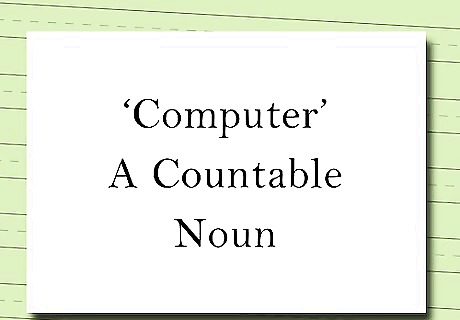
Make further distinctions within the parts of speech. If you wish to be thorough about the grammatical function of this word, further determine whether a noun is countable or uncountable, whether a verb is transitive or intransitive, and so on.
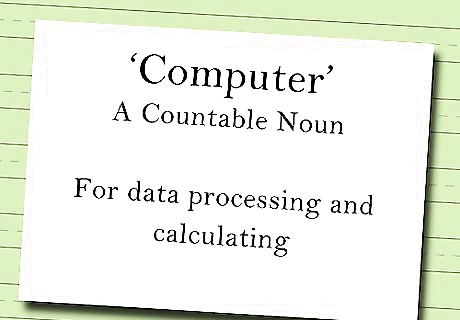
Choose a specific sense of the word and think about the word's meaning in that sense. One good way to go about this is to consider how you would explain this word to a small child or a person who is just beginning to speak the language. Avoid using descriptive words that are more complicated than the word in question, unless you also explain their meaning.
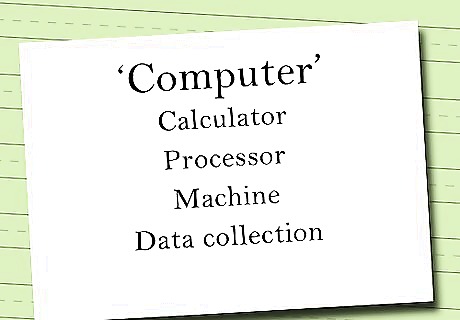
Explore the word. What other words seem similar? What words are close? What is the difference between this word and other related words? What distinguishes "fragile" from "weak" from "flimsy"?
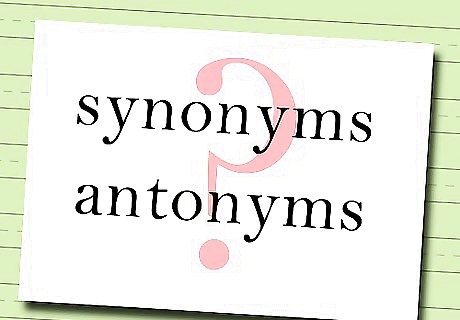
Think of synonyms (words that mean the same) and antonyms (words that mean the opposite) for the word. Some of these can go into the definition, if they are appropriate.
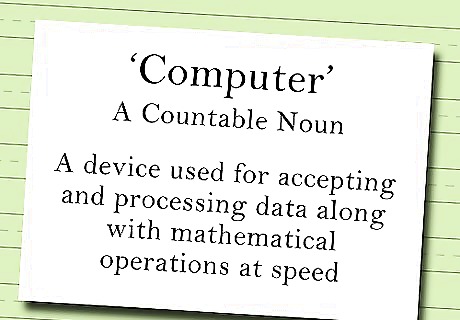
Describe the word. While it's perfectly all right to include synonyms in the definition, a definition composed entirely of synonyms may not be as helpful as it could be. Thus, try to be as descriptive as possible. If the word has a range of meanings, you'll need to address each one separately.
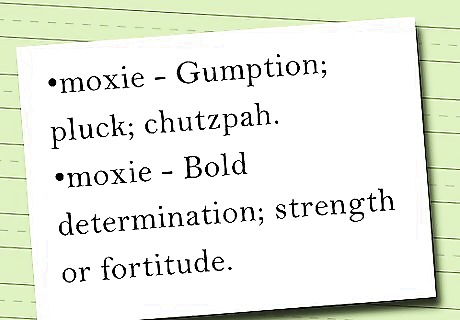
Use words in the definition that will be familiar to a reader who does not already know the word being defined. Compare: moxie - Gumption; pluck; chutzpah. moxie - Bold determination; strength or fortitude.
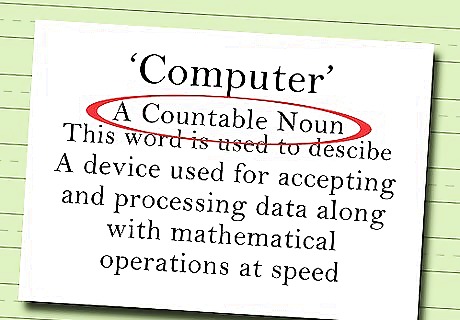
Write the definition in the typical style of a dictionary. Phrases such as "This word is used to..." or "Describes a situation in which..." may help to get you started, but edit them out of your final definition.
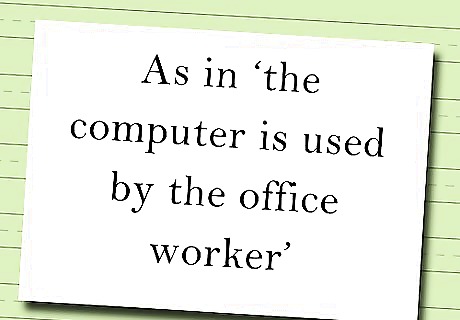
Write the definition so that it matches the part of speech. Verb definitions will contain many verbs; noun definitions, many nouns. Most verb definitions will begin with the word "to". For instance, a definition for the verb "pause" might read, "To stop briefly or temporarily; to interrupt a process or activity and later resume it." Noun definitions may begin with the words "a", "an" or "the".
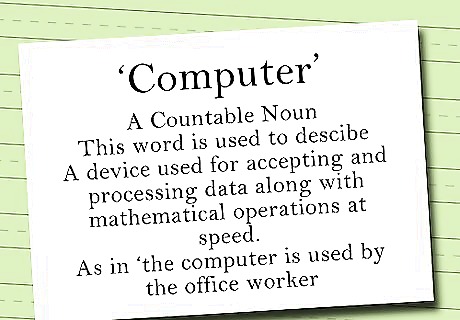
Read your definition and make sure that it agrees with the word and the sense you are trying to define.
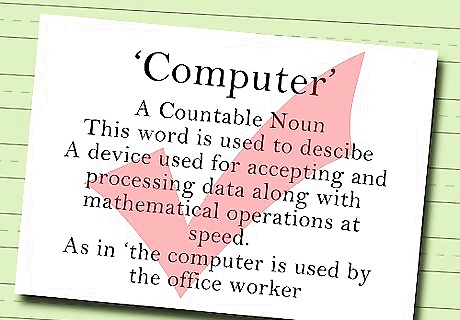
Have somebody else read your definition and tell you if it makes sense.


















Comments
0 comment